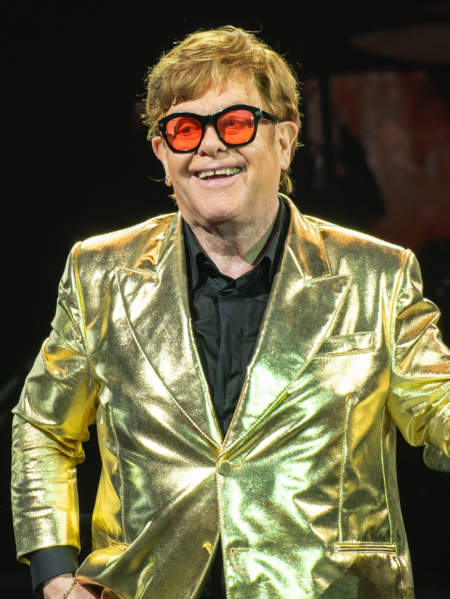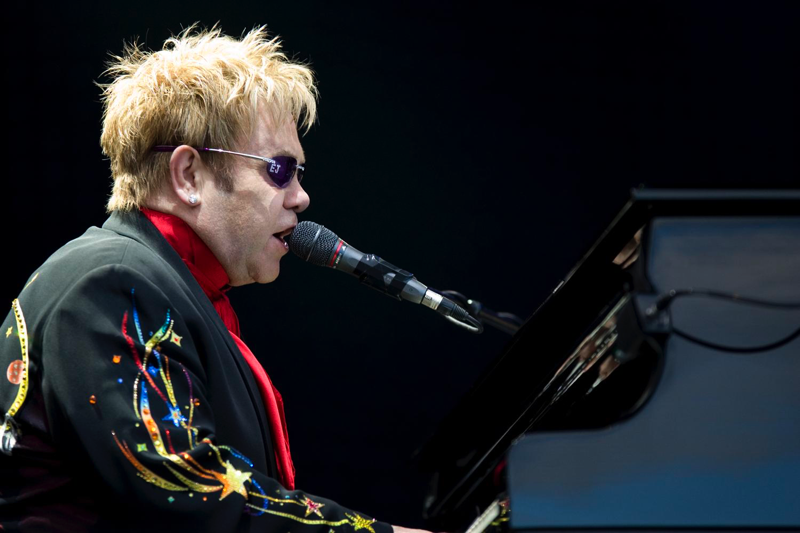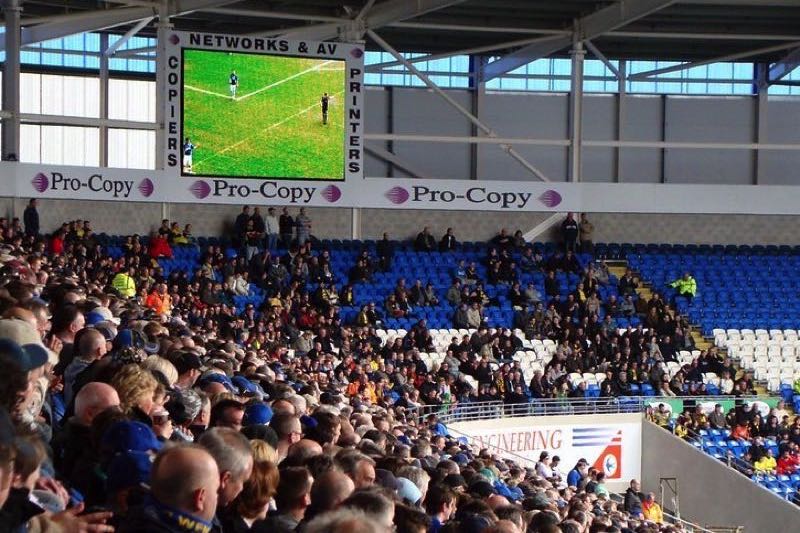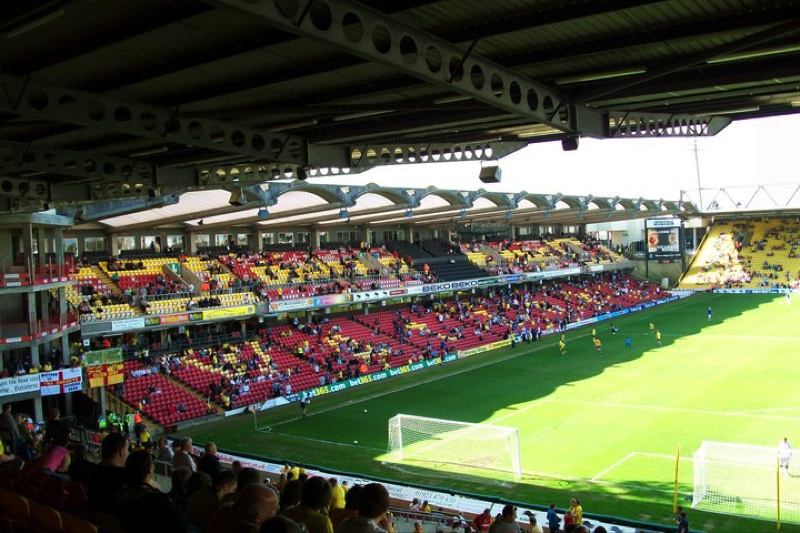Watford FC has had its fair share of triumphs and challenges, but perhaps one of the most intriguing chapters in the club’s story is when it was owned by iconic music legend, Sir Elton John. This seemingly unlikely union between a global pop sensation and a football club marked the beginning of a remarkable journey that has spanned decades.
In an age where well-known figures are increasingly involved in football, often as investment opportunities, it is refreshing to see someone who got involved simply for the love of his club. In his recent book, fittingly titled Watford Forever, John said “I never got a penny back from my investment but that didn’t matter at all…It had enabled me to have the greatest adventure of my life.”
John’s Early Connection with Watford
Before delving into the ownership saga, it’s essential to understand how Elton John’s connection with Watford FC developed. Born Reginald Kenneth Dwight in northwest London, in 1947, Elton John’s affinity for football was rooted in his childhood. Growing up in the suburbs of London, he developed a love for the sport, particularly for the team that would later become an integral part of his life – Watford FC. The Hornets were very much John’s local club as they are situated just five miles north of Pinner, where he grew up.
John Becomes Chairman

A major turning point in Watford’s history came in 1976 when Elton John, by then a household name, decided to take the helm as the chairman of the football club. The move surprised many, given his status as an international music sensation and busy performing schedule, but it showcased Elton’s passion for the game and his commitment to his hometown club.
The club were also in desperate need of a change of leadership at the time. Previous owner, Jim Bonser, was not only the target of fan anger from the terraces, but Watford striker, Keith Mercer, even named his dog ‘Bonser Out’. Under Bonser, the club had racked up debts of £200,000, debts that John paid off in full when taking over the club. In today’s money that equates to around £1.2m, so far from the sort of debts that current high-profile football clubs have racked up. In 2021-22, the average Championship side was losing that much money every three weeks just through operational costs.
Less of the dire state of football finances though and back to Sir Elton. His arrival as chairman brought about a transformative period for Watford FC. The club, then languishing in the Fourth Division, experienced a meteoric rise under his leadership. With the appointment of Graham Taylor as manager in 1977, Watford secured successive promotions and later, in 1982, secured promotion to the First Division for the first time in club history. This unprecedented ascent marked a golden era for the Hornets, and Elton John’s influence was undeniable.
Watford’s Rise Under New Owner
The late 1970s and early 1980s saw Watford FC become a force to be reckoned with, thanks to the shrewd management of Graham Taylor and the financial backing and unwavering support of Elton John. The team achieved its highest-ever league finish in the 1982-83 season, securing a second-place finish in the First Division, only behind Liverpool. For a club playing Division Four football just five years prior, this was a truly phenomenal achievement.
The singer’s impact went beyond financial contributions though and his presence in the boardroom infused the club with newfound energy and determination. Completely revitalised, the Hornets managed to make a historic appearance in the 1984 FA Cup final (a feat they only managed again in 2019). Back off the pitch, Elton John’s larger-than-life personality and genuine love for Watford endeared him to fans, turning the club into a household name far beyond the borders of Hertfordshire.
John Steps Down

As with many chapters in life, Watford FC’s story with Elton John as owner eventually came to an end. In 1990, after 14 years at the helm, Elton John decided to step down as chairman and sell his stake in the club. He sold a 93% share in the Hornets to Jack Petchey for a sum of £3.5m. The decision when the confirmed sale came through met with sadness from the fans who had witnessed the club’s transformation under his ownership.
It was no great surprise though as John had been exploring a sale a few years prior. He had a £2m deal in place with Robert Maxwell but Maxwell withdrew after a dispute with the Football League. Another buyer willing to pay this asking price was Paul Raymond, of Paul Raymond Publications fame (softcore magazines) but John refused to sell to him. Perhaps he did not like Raymond’s plan to turn Watford into a seven-day-a-week social club.
As for why John wanted to sell following £8-9m of investment, personal factors were a part but the departure of Graham Taylor was a big factor too. Sir Elton said “I still loved the club, but there had been a serendipity, a magic, about the two of us (him and Taylor) together, and I couldn’t conjure up that same magic without him.” There was little he could do about keeping Taylor either as he simply fancied a new challenge and headed off to recently relegated Aston Villa.
In today’s era, it is hard to imagine a manager being completely irreplaceable but in many ways Taylor was and certainly to John. Dave Basset, who came into fill Taylor’s boots, only lasted 28 games and only seven of them resulted in victory. It would end up taking over 27 years before the Hornets found a manager who registered a better win ratio than Taylor.
Legacy & Impact
Though his formal ownership had concluded, Elton John’s influence on Watford FC endured. The infrastructure improvements, financial stability, and winning mentality instilled during his tenure continued to shape the club’s trajectory for years to come. Watford fans fondly remember Elton John’s tenure not just for the success on the pitch but for the sense of community and pride he instilled in the club.
In 2014, Elton John returned to Vicarage Road to open a stand named after him, something the honorary life-president called “one of the greatest days of my life”. He has also performed five times at Vicarage Road, the most recent being in 2022 as the final leg of his European Farewell Yellow Brick Road tour. Talking about the event John said “I simply had to play Vicarage Road a final time” and what a show he put on for the crowd.
As if the bond between John and Watford was not already strong enough by this point, in November 2023 the Hornets renamed a road outside the stadium (Occupation Road) to Yellow Brick Road. This was the result of a fan-led push to find another way of commemorating their former owner. The year before, a huge mural of John was also painted beside the Sir Elton John Stand, showing a young John sat on a football. At this rate, it seems only a matter of time before the world-famous pop star has a statue built outside Vicarage Road too.





